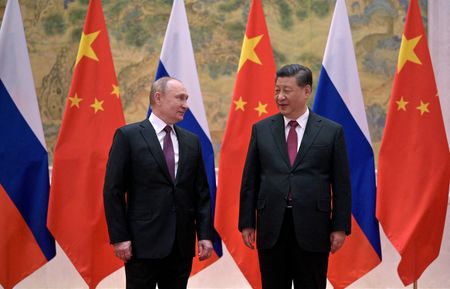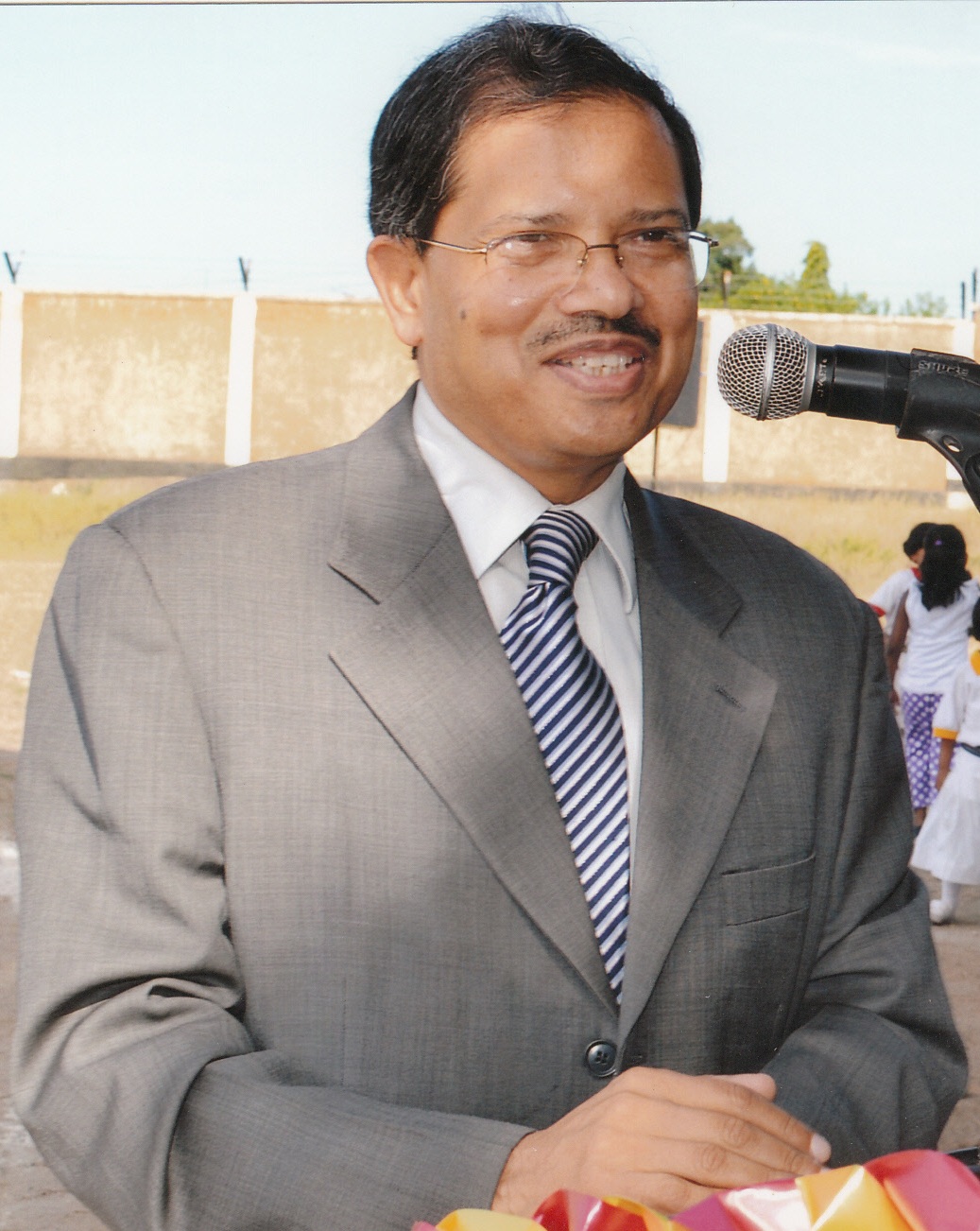
China-Russia Relations – Redefining World Order

The CPC (Communist Party of China) Politburo went into huddles on several occasions during the disintegration process of the Soviet Union from 1988 till its total dissolution in December 1991, seeking answers as to how to prevent the CPC, which has nurtured and ruled modern-day China, from meeting with a similar fate. The answer each time was to increase China’s comprehensive national strength, so that the country is as strong inside as it is on the outside, unlike the former Soviet Union which was viewed from Zhongnanhai (Beijing headquarters of the CPC and the State Council of the PRC) as a military super power, but lacked the economic prowess to sustain itself for a longer period of time.
The disintegration of its earlier ally into several independent nations, with Russia as the largest of the successor states, spurred the sputtering ‘opening up and reforms’ process in China initiated by Deng Xiaoping, to gallop at a much faster pace in the last decade of the last century and the first decade of the 21st century. Meanwhile, the downturn in the China-Soviet Union ties which had deteriorated sharply during the Mao Zedong era, was already on the mend with the visit of former Soviet leader Gorbachev to Beijing in May 1989 in the midst of the student-led unrest which ended rather violently in Tiananmen Square, not long after Gorbachev’s departure.
Concurrent with China’s rapid economic development in the last three decades, its ties with the Russian Federation have been growing steadily. With the collapse of the Soviet Union, the de-facto US-China alliance ended and a China-Russia reproachment began. In 1992, the two countries entered into a “constructive partnership”, which was upgraded into a “strategic partnership” in 1996. The two giant neighbours entered into a ‘Treaty of Good Neighbourliness and Friendly Cooperation’ in 2001.
Sino-Russian relations are currently close and cordial in all fields, particularly militarily, economically and politically. Both countries maintain a strong geopolitical and regional alliance. Though there is no direct ideological alignment between Russia and China today, both countries harbour a deep suspicion of western interference, particularly after US President Trump’s China de-coupling strategy, which has been continued under his successor, and the irritants in US-Russia relations that have come to the forefront in the Biden Presidency era.
Comparatively, the Russian nominal GDP at around $1.6 trillion in 2019 is almost eight times smaller than the Chinese nominal GDP at around $14 trillion in the same year. When their PPP GDP figures are compared the difference is even more stark. However, due to China’s much larger population, the per capita nominal GDPs are comparable at $11,191 for Russia in 2019 and $10,099 for China in the same year.
In terms of human development index, Russia is substantially ahead of China, but the latter is catching up. In terms of military expenditure though the Chinese figure is about four times larger than that of Russia, the latter spends over 3% of its GDP on its military compared to about 2% by China. China has about twice the number of active military personnel than that of Russia, but the latter’s nuclear arsenal was last counted as 6257 as compared to 350 for China. An estimated 75,000 Russian expatriates are living in China, while the estimates of Chinese in Russia are anywhere between 200,000 to 400,000.
Since Russia’s 2014 takeover of Crimea and allegations of Moscow’s interference in the 2016 US elections, relations between the US and Russia have plummeted to a post–Cold War low, despite Trump’s affinity towards Putin. Biden supports a strong NATO alliance, and took early measures to repair relations with its European allies. He is committed to renewed US multilateral leadership, and cooperating with partners to uphold shared democratic values and human rights including in the context of both Russia and China. The Biden administration hoped to neutralize Russia in order to focus on the all-encompassing challenge of China.
Moscow probably welcomes the greater predictability and consistency of the more orthodox Biden Presidency. Biden and Secretary of State Antony Blinken are known quantities to the Russians. Biden made his first official visit to Moscow back in 1979. During his election campaign Biden had said that in dealing with Russia he will balance confrontation with engagement. The Kremlin looks to undermine American influence as part of its project of promoting Russia as an independent global power.
President Biden and President Putin met on 16 June 2021 in Geneva to potentially lay some groundwork for the shape of future US-Russia relations. The specific goal of the summit was to establish enough agreement with Russia so that the US wouldn’t have to spend so much time responding to escalatory moves from Russia. This was partially achieved with the agreement to exchange ambassadors again, and to start strategic stability talks. Putin reiterated that the problem in Ukraine is the failure of the latter to comply with commitments they’ve made, which was not acceptable to the US side.
Thus, pushed to the wall by the US and increasing European hostility towards them, Xi and Putin met in Beijing on 4th February this year prior to the inauguration of the Winter Olympics, which itself had been vitiated by the boycott of several global leaders and representations, who normally grace such ceremonial events, allegedly on account of China’s human rights abuses.
Putin was one of the twenty odd leaders who made it to China, and hailed his country’s “unprecedented” ties with the host country at a time of growing tensions with the West over Ukraine and other issues. In a joint statement, the two leaders reaffirmed their support to each other’s foreign policy, including Russia’s backing of China over Taiwan. The two leaders have criticised the negative US influence both in Europe and the Asia-Pacific region and have also opposed, “…the further expansion of NATO…” in a “Cold War era” approach.
During the initial phase of Russia’s military campaign against Ukraine, Chinese official statements used the Russian description of “…special military operation.” Chinese officialdom, also failed to affirm (as they usually do), respect for sovereignty, and territorial integrity of states, thus indicating a modicum of support for Russian claims in Ukraine. Thus far, China recognizes Ukraine as a legitimate state, but has made no comment on the breakaway republics to the east. In late January’ 22, Foreign Minister Wang Yi called Russia’s security concerns “legitimate”, saying they should be “taken seriously and addressed”.
Publicly, the Chinese Government has urged all sides to deescalate tensions in Ukraine, driven among other factors, by the fact that China wants to protect its interests in that country, including that of its nationals in Ukraine. Ukraine is China’s top trading partner and is also part of the BRI initiative. China claims that it has never invaded other countries or engaged in proxy wars, in an attempt to burnish its peaceful stance, but has not condemned Russia’s military action against Ukraine either. It has also consistently over the years, rejected the imposition of western sanctions against Russia, saying that it is not the best way to solve the problem. In the UN, including voting on resolutions in the UNSC, UNGA and UNHRC, the Chinese have consistently abstained, indicating its desire not to have to choose sides, despite the growing closeness with Russia.
Some social media users in China have heaped praise on President Putin, labelling him as “awesome” and have sought to justify his actions to counter US influence in the world. However, there have also been the isolated criticism, like that of five Chinese academicians who wrote an open letter denouncing Russian actions. “…This is an invasion…” said Xu Guoqi. The letter was taken down hours after it was posted.
The Kremlin would have preferred a bloodless victory. The attack on Ukraine is likely to trigger a reinforcement of NATO’s positions in eastern Europe – the reverse of Russia’s aims – and leave Russia both more isolated in the world and even more dependent on China. US State Department spokesman Ned Price is reported to have said that this was an opportunity for China to use its leverage with Russia to pull back Vladimir Putin, given the “no limits” pact signal on the opening day of the Winter Olympics. While China may indeed have dome just that in private, publicly it does not see the need to pressurise Russia with such advice.
Now that the military action in Ukraine is into its second week, with no clear outcome visible as yet, Russia’s ties with the US and most of Europe and several other parts of the globe are on rapid and mostly non-reversible decline, particularly in the economic, trade and financial spheres. It is also likely to face intense heat in some global forums such as the UNHRC and the ICJ. This will lead to Russia to try and bolster its ties with the rest of countries, which have not been openly critical, such as China, India and several countries in the CIS region and Africa. Russia will continue its close military and energy partnership with India in exchange for the latter’s neutrality, but cannot rely on India unquestioned support, particularly due to the latter’s closeness with the US, Europe, Australia and Japan, including in the Quad.
The mantle, for a closer strategic and economic partnership between Russia and a major world power, falls on China. The latter has and will continue to respond to such outreach from Russia, except when its immediate interest or ties with other countries including the US, are likely to get severely affected. For example, China would probably hesitate to join a Russian initiative to boycott energy exchanges in non-USD currencies.
Be that as it may, the Ukrainian crisis has hastened the process of much closer China-Russia geopolitical and economic ties, which may see the many world powers once again divided into two camps, with the US-Europe axis on one side, and China-Russia on the other. If so, non-alignment will once again make a comeback for countries, like India, which will not feel comfortable to be tagged to either side.
*****************
Disclaimer
The opinions expressed in this article are the author’s own and do not reflect the views of Chanakya Forum. All information provided in this article including timeliness, completeness, accuracy, suitability or validity of information referenced therein, is the sole responsibility of the author. www.chanakyaforum.com does not assume any responsibility for the same.
Chanakya Forum is now on . Click here to join our channel (@ChanakyaForum) and stay updated with the latest headlines and articles.
Important
We work round the clock to bring you the finest articles and updates from around the world. There is a team that works tirelessly to ensure that you have a seamless reading experience. But all this costs money. Please support us so that we keep doing what we do best. Happy Reading
Support Us





















POST COMMENTS (0)